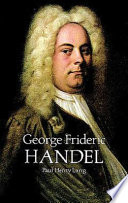 All the images of nature were still present to him, and he drew them, not laboriously, but luckily; when he describes anything, you more than see it, you feel it too. Those who accuse him to have wanted learning give him the greater commendation: he was... All the images of nature were still present to him, and he drew them, not laboriously, but luckily; when he describes anything, you more than see it, you feel it too. Those who accuse him to have wanted learning give him the greater commendation: he was...  The Eclectic review. vol. 1-New [8th] - Page 5481809Full view The Eclectic review. vol. 1-New [8th] - Page 5481809Full view - About this book
 | Michael Steppat - 1980 - 646 pages
...Piece of Secret History (1747). The feeling voiced by Dryden himself that those who accuse Shakespeare to have wanted learning "give him the greater commendation: he was naturally learn'd," y had been developed against lesser poets than Shakespeare — as also against Dryden himself... | |
 | James G. McManaway - 1990 - 442 pages
...man who of all modern, and perhaps ancient poets, had the largest and most comprehensive soul. All the images of nature were still present to him, and...them not laboriously, but luckily: when he describes anything, you more than see it, you feel it too. Those who accuse him to have wanted learning, give... | |
 | Paul Henry Lang - 1996 - 794 pages
...Dryden, in his Essay on Dramatic Poesy, said concerning Shakespeare applies equally to Handel: "All the images of nature were still present to him, and...them, not laboriously but luckily: when he describes anything, you more than see it, you feel it too." Yet while Handel describes a landscape or a bucolic... | |
 | Alan Sinfield - 1996 - 172 pages
...man who, of all modern and perhaps ancient poets, had the largest and most comprehensive soul. All the images of nature were still present to him, and he drew them not laboriously, but luckily. . . . Those who accuse him to have wanted learning give him the greater commendation. He was naturally... | |
 | Bill Readings - 1996 - 260 pages
...and with little Latin, Shakespeare is claimed by Dryden not to have written with anything in mind: "Those who accuse him to have wanted learning, give him the greater commendation: he was naturally learn'd; he needed not the spectacles of Books to read Nature; he look'd inwards, and found her there."16... | |
 | Howard Anderson - 1967 - 429 pages
...man who of all modern, and perhaps ancient poets, had the largest and most comprehensive soul. All the images of Nature were still present to him, and he drew them, not laboriously, but luckily " 37 The distinction between luck and labor, made by Dryden in favor of luck and Shakespeare, exploited... | |
 | Seamus Perry - 1999 - 330 pages
...the 'freshness, raciness, and energy' of Shakespeare's observation. As Neander wonderingly comments, 'when he describes any thing, you more than see it, you feel it too'. 1" See David Lovett, 'Shakespcare as a Poet of Realism in the Eighteenth Cenmry', F.LH 1 (1933), 16--89;... | |
 | Samuel Alexander - 2000 - 324 pages
...and perhaps ancient poets had the largest and most comprehensive soul. All the images of nature were present to him, and he drew them not laboriously but luckily. When he describes anything, you more than see it, you feel it too. Those who accuse him to have wanted learning give... | |
 | Trevor Thornton Ross - 1998 - 412 pages
...into experience, enfolding the letter into its referent ("you see in it"). Of Shakespeare, he wrote, "when he describes any thing, you more than see it, you feel it too" (1:67). In such assertions are the first faint incantations of an ideology of the aesthetic, which... | |
 | Margreta de Grazia, Stanley Wells - 2001 - 352 pages
...man who of all modern, and perhaps ancient poets, had the largest and most comprehensive soul. All the images of Nature were still present to him, and he drew them, not laboriously, but luckily . . . Those who accuse him to have wanted learning, give him the greater commendation: he was naturally... | |
| |